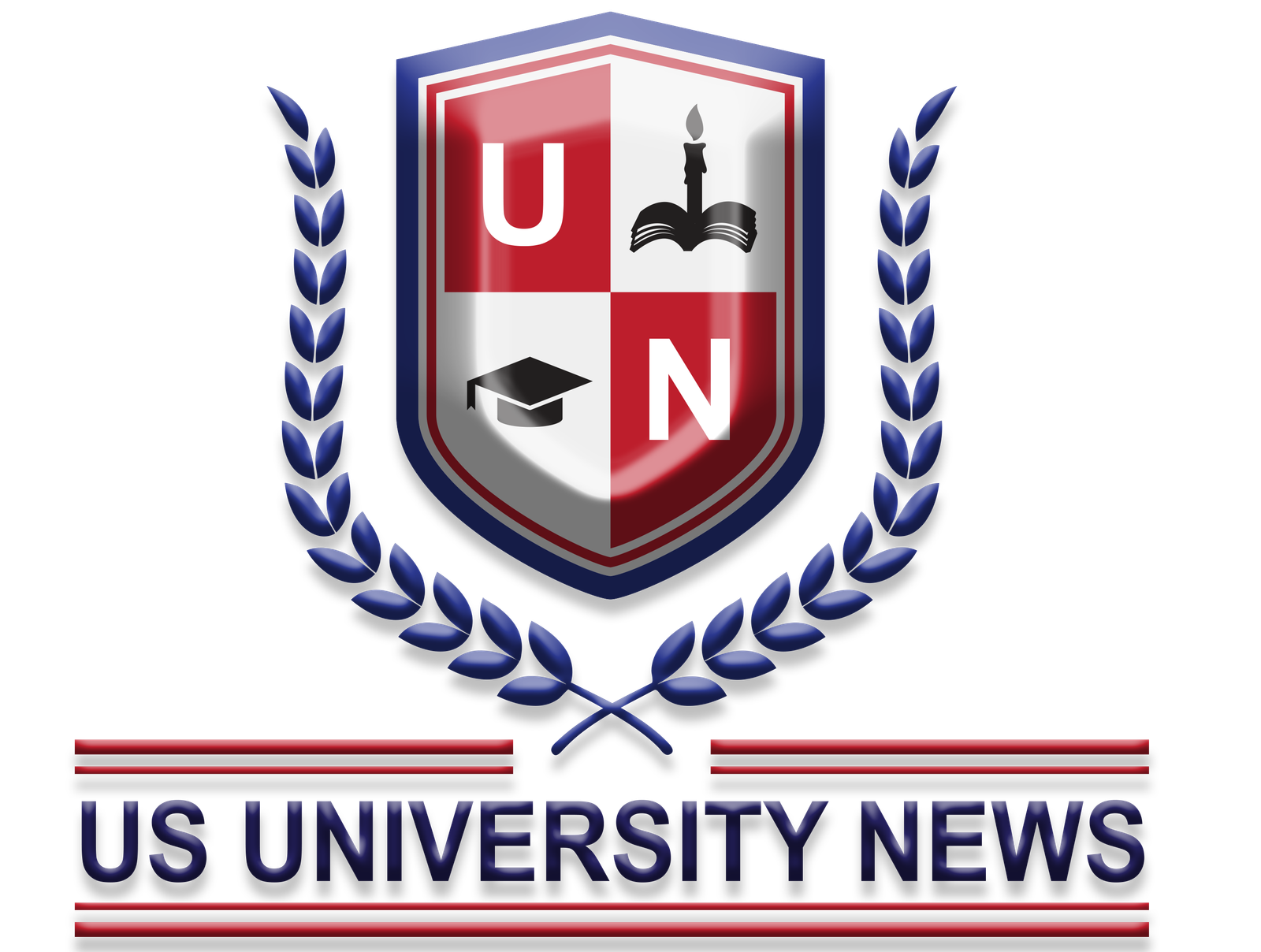Requirement For MBA Admission To gain admission to an MBA program, candidates typically need a bachelor’s degree and relevant work experience. Many schools also require standardized test scores like the GMAT or GRE.
Are you considering pursuing an MBA in the USA? Understanding the requirements for admission is crucial for a successful application process. Generally, applicants must hold a bachelor’s degree from a recognized institution and have completed the Graduate Management Admissions Test (GMAT).
Additionally, demonstrating English language proficiency through tests like IELTS or TOEFL is often necessary. While work experience is not always mandatory, most programs prefer candidates with a minimum of two years of relevant professional experience. Let’s delve deeper into the essential prerequisites and criteria for securing admission to MBA programs in the United States.
Why Pursue an MBA?
Introduction paragraph about Requirements for MBA admission and Why Pursue an MBA?…

Table of Contents
Career Advancement
Getting an MBA can greatly enhance your career opportunities. It provides you with the necessary skills and knowledge to advance in your current field or transition into a new industry. With an MBA, you can expect higher job prospects, increased earning potential, and access to senior-level positions. Here are a few reasons why pursuing an MBA can lead to career advancement:
- Develop expertise in various business areas such as finance, marketing, and strategy.
- Enhance your leadership and management skills, making you a valuable asset to organizations.
- Network with industry professionals and gain exposure to new opportunities.
- Stand out from the competition and increase your chances of getting promoted.
Developing Business Skills
An MBA program is designed to help you develop a wide range of business skills that are essential for success in today’s competitive job market. Here are some key skills you can expect to gain:
| Skills | Description |
|---|---|
| Strategic thinking | Learn to analyze complex business problems and make informed decisions. |
| Communication | Improve your oral and written communication skills, essential for effective collaboration. |
| Teamwork | Develop the ability to work effectively in teams and lead diverse groups of people. |
| Problem-solving | Acquire critical thinking skills and learn how to solve business challenges creatively. |
General Admission Requirements
For individuals considering pursuing an MBA, understanding the general admission requirements is crucial to successfully gaining acceptance into a program. The prerequisites for admission often vary depending on the institution, but typically include specific criteria such as a bachelor’s degree, work experience, GMAT or GRE scores, letters of recommendation, a statement of purpose, and a resume/CV. These factors are essential considerations for prospective applicants and play a significant role in the selection process for MBA programs.
Bachelor’s Degree
Obtaining a bachelor’s degree is a fundamental requirement for MBA admission. Most institutions mandate a completed undergraduate education from an accredited university or college. Some programs may also specify certain academic prerequisites or coursework related to business or management. Additionally, specific GPA standards may be expected, varying among different schools.
Requirement For MBA Admission
Work experience is often a key component of MBA admission requirements. Many programs seek candidates with professional backgrounds, typically preferring applicants with a minimum number of years in the workforce. Demonstrating leadership, managerial roles, and industry expertise can greatly enhance an individual’s application and overall candidacy.
Gmat or GRE Scores
Submission of GMAT or GRE scores is a standard requirement for MBA admission. These standardized tests are used to evaluate an applicant’s aptitude for business studies and are often a critical factor in the selection process. Certain programs may have specific score thresholds, and candidates are encouraged to prepare diligently for these examinations to attain competitive results.
Letters of Recommendation
Letters of recommendation play a significant role in the MBA admission process. These endorsements provide insight into an applicant’s character, skills, and suitability for the program. Candidates need to secure strong recommendations from individuals who can attest to their professional capabilities and potential for success in a graduate business program.
Statement of Purpose
The statement of purpose is a vital component of the MBA application. This written essay allows applicants to articulate their aspirations, career goals, and motivations for pursuing an MBA. It serves as an opportunity for candidates to showcase their passion for the field, outline their objectives, and convey how the program aligns with their professional aspirations.
Resume/cv
The submission of a comprehensive resume or curriculum vitae (CV) is a requisite part of the MBA admission process. This document provides a detailed overview of an individual’s academic background, work experience, accomplishments, and relevant skills. A well-crafted resume/CV is essential for presenting a compelling case for admission and highlighting the candidate’s qualifications and achievements.
Academic Requirements
Applying for an MBA program requires meeting specific academic criteria. Academic requirements play a crucial role in the admission process. In this blog post, we will delve into the key aspects of academic requirements for MBA admission.

Minimum GPA
One of the essential academic requirements for MBA admission is the minimum GPA. Most universities set a minimum GPA requirement for applicants. Typically, a strong GPA demonstrates academic excellence and commitment to scholastic pursuits. Admissions committees often look for a minimum GPA of 3.0 or higher. However, some competitive programs may require a GPA above 3.5.
Transcripts
Transcripts provide a detailed record of an applicant’s academic performance. Admissions committees review transcripts to evaluate the quality of the applicant’s undergraduate education. Consistent high performance in core courses is a positive indicator for MBA admission. Applicants must ensure that their transcripts accurately reflect their academic achievements and relevant coursework.
Prerequisite Courses
Completing prerequisite courses is another key aspect of meeting academic requirements for MBA admission. These courses prepare students for the rigorous curriculum of an MBA program. Prerequisite courses may include subjects like accounting, finance, economics, and statistics. Fulfilling these course requirements demonstrates an applicant’s readiness for graduate-level business education.
English Language Proficiency
For students aspiring to pursue an MBA degree, meeting the admission requirements is a crucial step toward achieving their career goals. One of the essential requirements for MBA admission is English language proficiency. MBA programs in the United States require applicants to be proficient in English to ensure that they can effectively communicate and participate in the program.
TOEFL or IELTS Scores
Applicants can demonstrate their English proficiency by taking the Test of English as a Foreign Language (TOEFL) or the International English Language Testing System (IELTS). These tests evaluate the applicant’s reading, writing, speaking, and listening skills. The minimum scores required for admission vary from one institution to another.
For instance, the University of Texas at Austin’s McCombs School of Business requires a minimum TOEFL score of 100 or a minimum IELTS score of 7.0. On the other hand, the University of Washington’s Foster School of Business requires a minimum TOEFL score of 100 or a minimum IELTS score of 7.0 for admission.
Exemptions
Some applicants may be exempt from taking the TOEFL or IELTS if they meet certain criteria. For instance, applicants who have completed an undergraduate or graduate degree from an institution where English is the primary language of instruction may be exempt. Additionally, applicants who are citizens or permanent residents of countries where English is the official language may also be exempt.
Applicants must check the admission requirements of the MBA programs they are interested in to determine if they are exempt from taking the TOEFL or IELTS. Failure to meet the English language proficiency requirement can lead to rejection of the application or delay in the admission process. Therefore, applicants should take the necessary measures to prepare and take the required English proficiency tests to increase their chances of admission to their desired MBA programs.
Interview Process
Requirement for MBA Admission is an important topic for individuals aspiring to pursue an MBA degree. The interview process is a crucial step in the admission process for MBA programs. This blog post will discuss the purpose of the interview, different types of interviews, and tips for preparing for the interview.
Purpose of the Interview
The purpose of the interview is to assess the candidate’s suitability for the MBA program. The interview allows the admissions committee to evaluate the applicant’s communication skills, personality traits, motivation, and career goals. It also provides an opportunity for the candidate to showcase their strengths, experiences, and potential contributions to the program.
Types of Interviews
There are different types of interviews conducted during the MBA admission process:
- Traditional Interviews: These interviews follow a question-and-answer format, where the interviewer asks the candidate a series of questions to assess their qualifications and fit for the program.
- Behavioral Interviews: These interviews focus on past experiences and behaviors to predict future performance. The candidate is asked to provide specific examples of their skills, achievements, and challenges.
- Case Interviews: These interviews assess the candidate’s problem-solving and analytical skills. The candidate is presented with a business scenario or case study and is expected to analyze the situation and provide recommendations.
- Group Interviews: These interviews involve multiple candidates and assess their ability to work collaboratively and communicate effectively within a team setting.
Preparing for the Interview
Proper preparation is essential for a successful MBA admission interview. Here are some tips to help you prepare:
- Research the program: Familiarize yourself with the MBA program’s curriculum, faculty, and mission. Understand the program’s strengths and how it aligns with your career goals.
- Review your application: Go through your application materials, including your resume, essays, and letters of recommendation. Be prepared to elaborate on the information provided and highlight relevant experiences.
- Practice common interview questions: Prepare responses to commonly asked interview questions, such as “Why do you want to pursue an MBA?” or “Tell me about a time when you faced a challenge and how you overcame it.”
- Mock interviews: Practice mock interviews with a friend or mentor to improve your interview skills and gain confidence.
- Dress professionally: Dress appropriately for the interview, presenting yourself in a polished and professional manner.
- Prepare questions: Prepare thoughtful questions to ask the interviewer to demonstrate your interest in the program and gain further insights.
Financial Requirements
When considering an MBA admission, understanding the financial requirements is crucial. Prospective students need to factor in tuition fees, scholarships, and grants, as well as loans and financial aid to support their educational pursuits.
Tuition Fees
When pursuing an MBA, tuition fees play a significant role in the decision-making process. The costs can vary depending on the institution and program chosen. Students need to consider the tuition fees and factor them into their financial planning. Additionally, some universities offer different fee structures for in-state and out-of-state students, further impacting the financial considerations for prospective MBA candidates.
Scholarships and Grants
Scholarships and grants can significantly alleviate the financial burden of pursuing an MBA. Many institutions offer various scholarship and grant opportunities based on academic performance, leadership qualities, or specific areas of study. Prospective students should thoroughly research and apply for these opportunities to help fund their MBA education. Additionally, external organizations and foundations also provide scholarships and grants that can support MBA candidates in financing their studies.
Loans and Financial Aid
For many MBA students, loans and financial aid are essential components of their financial planning. Federal and private loan options are available to assist with tuition and living expenses. Prospective students must understand the terms and conditions of different loan options and evaluate their repayment plans. Furthermore, institutions may offer their financial aid packages, including work-study programs, assistantships, or fellowships, which can provide valuable financial support to MBA students.
Application Process
Embarking on an MBA journey requires understanding the essential aspects of the admission process. Let’s delve into the requirements for MBA admission, focusing on the application process.
Deadlines
Meeting deadlines is crucial for successful MBA applications. Ensure you are aware of all application deadlines for the programs you are interested in. Early preparation is key to submitting your application on time.
Online Application
Completing the online application accurately is vital. Provide all required information and documents to avoid delays in the process. Double-check your submission before finalizing it to prevent any errors.
Application Fee
Most MBA programs require an application fee. Understand the fee structure for each program you apply to. Budget accordingly and ensure timely payment to avoid any disruptions in your application process.
Tips for a Strong Application
Are you considering pursuing an MBA degree? If so, there are specific requirements you must meet to gain admission into a program. However, meeting the minimum requirements may not guarantee acceptance. That’s where crafting a strong application comes into play. In this article, we’ll cover tips for creating a compelling MBA application that stands out from the rest.
Highlighting Relevant Experience
One way to make your MBA application stand out is by highlighting your relevant experience. Be sure to include any leadership roles you have held, projects you have managed, and any other relevant experience that shows your ability to lead and solve problems. Use specific examples and quantify your achievements when possible. This will help demonstrate to the admissions committee that you have the skills and experience necessary to succeed in an MBA program.
Crafting a Compelling Statement of Purpose
Your statement of purpose is your chance to explain why you want to pursue an MBA degree and how it fits into your career goals. Be sure to highlight your strengths and unique qualities, but also be honest about your weaknesses and how you plan to overcome them. Use specific examples to show how an MBA degree will help you achieve your career goals. Keep in mind that your statement of purpose should be concise and well-written, so take the time to edit and revise it until it’s perfect.

Choosing Strong Recommenders
Your letters of recommendation are an important part of your MBA application, so it’s important to choose recommenders who know you well and can speak to your abilities. Consider asking former supervisors, professors, or colleagues who can provide specific examples of your strengths and accomplishments. Provide your recommenders with specific information about your goals and how an MBA degree will help you achieve them. Don’t forget to thank your recommenders for their time and assistance.
Polishing your Resume/CV
Your resume or CV is the first impression the admissions committee will have of you, so it’s crucial to make it stand out. Be sure to include relevant work experience, education, and any other accomplishments that show your leadership skills and ability to succeed in an MBA program. Use action verbs and quantify your achievements when possible. Keep your resume or CV concise and easy to read, and don’t forget to proofread it for any errors or typos.
Conclusion
Meeting the requirements for MBA admission is crucial for pursuing a successful career in business. From standardized test scores to work experience, the application process demands careful consideration and preparation. By understanding and fulfilling these requirements, aspiring MBA students can enhance their chances of gaining admission to reputable business schools and furthering their professional growth.




